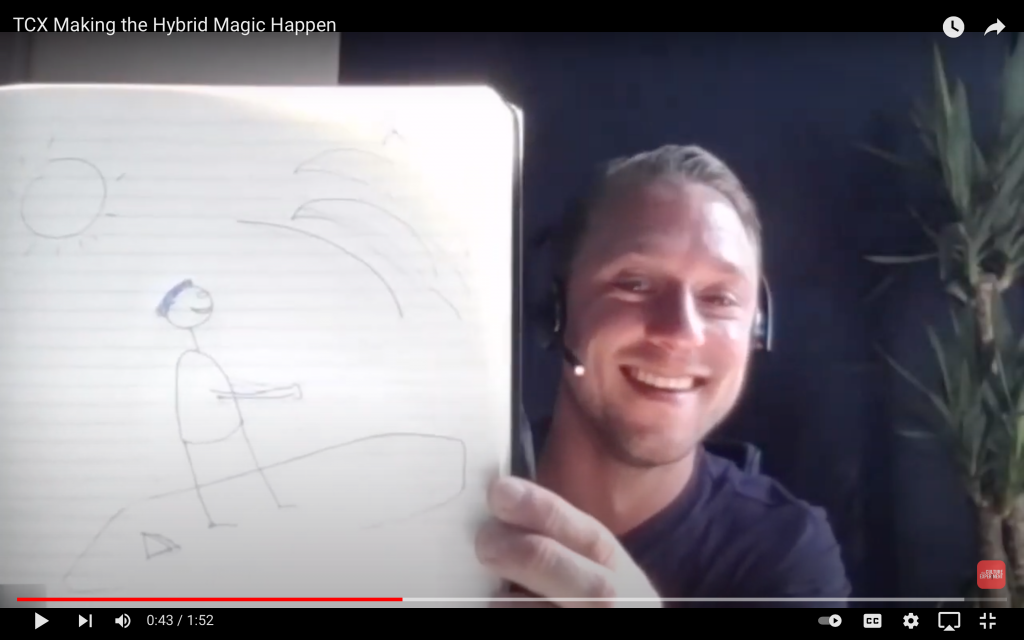Feel-good experiments to care for colleagues and friends
If I’ve learned two things from this pandemic, it’s these:
Working from home is EXHAUSTING. Whether you fall into the 44% of employees struggling with a heavier workload, or the 31% suffering depression, anxiety or excessive fatigue, chances are you’re hanging on by your fingernails for a post-vaccinated world. Yet despite this stress, we’ve proved time and time again that…
People are enormously kind. From front line workers to ‘normal’ folk rallying to help their vulnerable neighbours, caring has gained a new currency. Kindness is the other side of the Covid coin.
No surprise we’re now being told to be kind to ourselves. As stress rises, and energy plummets, ‘wellbeing’ is the word on everyone’s (trembling) lips. We’ve attended the ‘pastoral care’ sessions, survived the resilience workshops, and cherry-picked the stuff that works for us: Gentle jogs and bracing cold showers… daily meditation and nightly gratitude diaries…we’re adhering religiously to our self-care regimes yet still feeling knackered.

So goodbye to all that, I say – time to get selfish! Stop fussing over ourselves, and start caring for our colleagues.
Huh? I hear you snort (as you down executive tools to mount your Peleton treadmill). How is helping my colleagues serving me? Let Dan in Accounts moan on about his fatigue, it’s my eyebags I’m worried about!
Well, there’s a mountain of research that proves it really is better to give than to receive (or on a par at least!) Every time you perform an act of kindness, you lower your blood pressure, along with your levels of cortisol, thus boosting your mood and self-esteem.
Granted, being saintly is easier said than done! If we’re feeling sick and tired (of Dan in Accounts), the last thing we want to do is reach out and have MORE interactions with colleagues (especially Dan. Seriously, he’s terrible).
But now is the time we need to stop thinking about ‘self-care’, and start thinking about ‘team care’.

Crucially I’m not talking about the kind of caring that falls under ‘contractual obligation’. Let’s face it, your team know the drill: Nice though it is to receive a regular phone call from an ‘empathetic leader’, it’s kinda their job, isn’t it? For every ‘caring call’ received (in line with company policy) people must grapple with interactions that are increasingly transactional, attritional or strained. It’s a poor exchange. So why not swap it for a peer exchange..?
Yes, try to care for your colleagues, but just as importantly encourage them to look out for each other. Caring for each other is surprisingly easy, rewarding and (gulp, that dread word) fun! We can all reach out to our team-mates in ways that they find touching and unexpected. Maybe it’s simply checking in with someone you don’t work with directly, or haven’t had much contact with recently. If the very thought seems exhausting, what better time to test the hypothesis: The best way we can take care of our own energy right now, is by looking after the wellbeing of the people with whom we work.
If you need inspiration (who doesn’t these days?) here are a few experiments we’ve been having fun with.
Experiments

Go Get ’em Tiger!
Hypothesis When someone is under pressure to deliver at work, getting a positive message from a colleague will help them feel supported and looked after.
Experiment When a colleague is sweating over a deadline or piece of work that you can’t help with directly but know will be putting them under pressure, send them a supportive text or WhatsApp. Show them you’re thinking of them. You have their back, and they’re going to ROCK IT!!

Be the Cheerleader…
Hypothesis We’re our own worst critics: In the absence of positive feedback, we can make up negative stories about how we’re perceived or valued which undermines our sense of wellbeing. Don’t forget how much people need to hear positive things, and how the smallest comment can have the largest impact.
Experiment During every chat with a colleague, tell them at least one thing they’re doing brilliantly – and how great an impact they’re having on you personally. Be specific about what they’re doing, so they can’t shrug it off. It doesn’t have to be about BIG stuff. It could be as simple as saying ‘the smile with which you started this teleconference made me feel energized and supported – thank you’.












